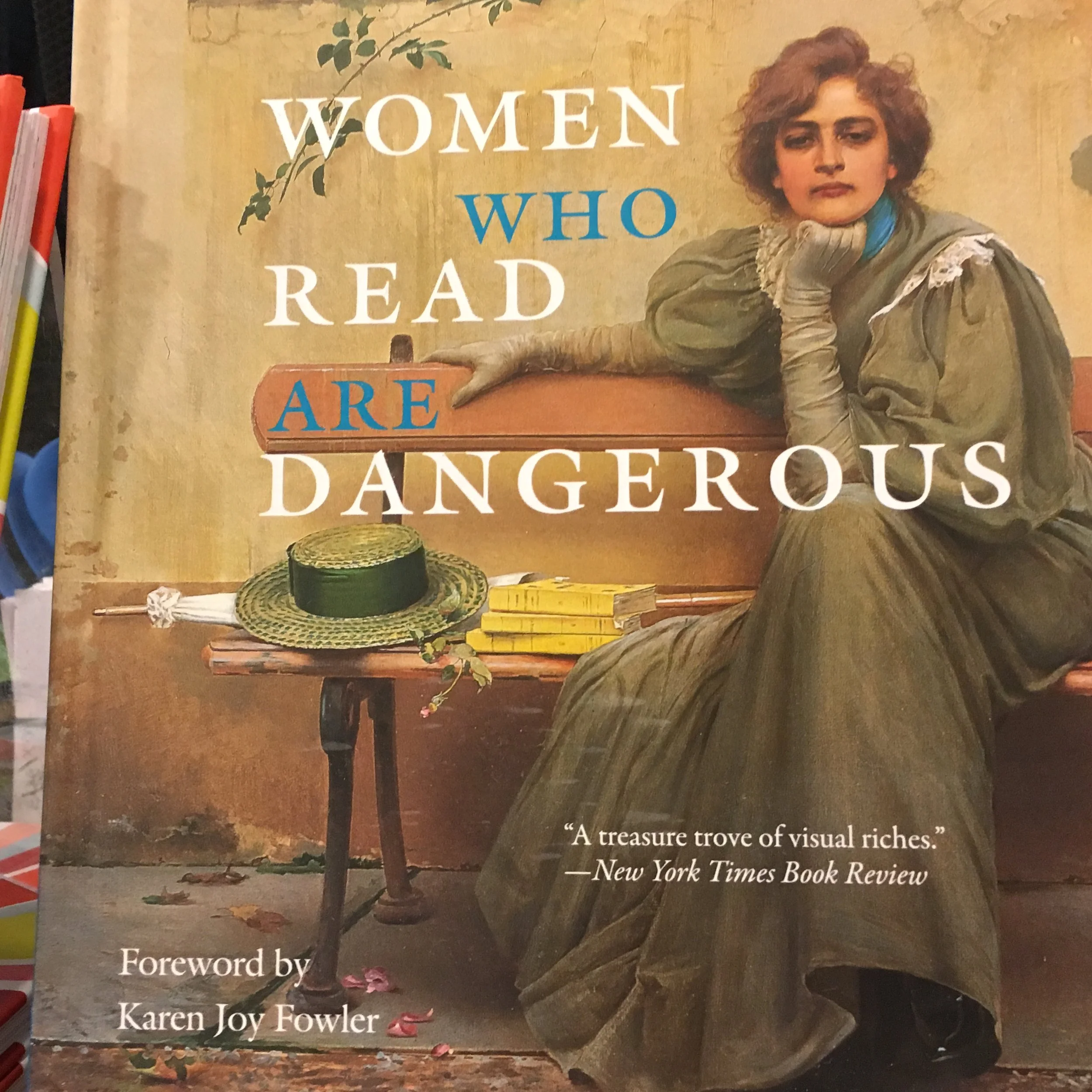Lessons from Literature: Election Edition
By Victoria Fortune
Numerous studies in recent years have found that reading literature helps develop empathy-- gratifying news to those of us who spend much of our time hunched over a keyboard devising stories. My most recent read proved the point. I’ll admit I was a little disappointed when my book group chose as our fall selection The Tenant of Wildfell Hall, by Anne Bronte. The other option was Hillbilly Elegy by J.D. Vance, which was my first choice, feeling desperate to understand support for Donald Trump. However, as the campaign rhetoric grew more crude and depressing, I welcomed the escape to nineteenth-century England, a world where honor and decorum and civility were paramount. It’s the last place I would’ve expected to find intimations of the current election. The fact that I did is a testament to the power of literature (or my obsession with the election).
The Tenant of Wildfell Hall is an epistolary novel, written in the form of a letters by one main character (Gilbert Markham), and, contained within one very long letter, an excerpt from the diary of the other main character (Helen Graham). The letters comprise a fairly standard love story between Gilbert and Helen, but Helen’s diary is the part that earned the book the label feminist literature. The excerpt relates the miserable experience of Helen’s ill-advised first marriage; a cautionary tale that illustrates how a husband’s power and authority over a wife could result in tyranny when the man lacks character, and how vital it is for a woman to choose wisely (if given a choice at all).
In some ways, the electorate is much like a nineteenth-century woman choosing a spouse: we are committing to a bond we cannot break (for the next 4 years) except in the most dire of circumstances, hitching our fortunes and our well-being to a person who will have significant sway over our lives. It is not a choice to be made lightly or with blinders on.
Helen’s diary excerpt begins when she is 18 and has started entertaining suitors. Helen’s stern, dispassionate aunt, full of wisdom born of experience, instructs Helen about the importance of choosing a husband wisely. Knowing her beautiful niece is likely to attract unsavory men, she warns, “Beauty is that quality which, next to money, is generally most attractive to the worst kinds of men.” (Consider Trump’s comment on the Access Hollywood tape: “You know I’m automatically attracted to beautiful — I just start kissing them.”)
Helen’s aunt implores her to examine the character of her suitors carefully, but when Helen meets the handsome Arthur Huntingdon, she is swept away. He is far more exciting and entertaining than the staid, respectable men her aunt has introduced her to, men who (like Clinton) may not be perfect, may not inspire passion, but are known entities who are steady and safe. She refuses to hear warnings from her aunt or friends about Arthur’s questionable character, turning a blind eye to evidence that he is not the man he claims to be. When she does finally glimpse hints of his flaws, she excuses them, saying that when he commits to her, he will become a better person. Her aunt warns her it is foolish to imagine she can change a man’s character, but she will not listen.
It isn’t till after their wedding that Helen sees Arthur for what he is: selfish, spoiled, nihilistic, cruel and lacking in any empathy or restraints of conscience or ethics. (Sound familiar?) He leaves her for months at a time to go on wild drinking binges with his friends, and within two years he has begun an affair with a woman who was a bridesmaid at their wedding. Despite his deplorable behavior, Helen remains the dutiful Christian wife, but she makes her disapproval clear.
Though it is he who destroys her affection through neglect and abuse, when Arthur realizes Helen no longer worships him, his cruelty and vindictiveness come to the fore. He flaunts his power and lashes out at her. When she realizes his reprehensible behavior is corrupting their young son, Helen finally decides to leave him (a criminal act at the time) but he discovers her plan. Unwilling to withstand the humiliation of her rejection, Arthur denies her money or any means of escape, keeping her captive and making her life a living hell.
It is difficult not to see a parallel between Arthur Huntingdon’s narcissism and Trump’s. Like Huntingdon, Trump is entirely self-serving and unable to handle criticism; he lacks a conscience, evident in the way he ripped people off through his casinos and university; he has a penchant for cruelty, evident in the way he gleefully demeans women, among others; and he appears unable to control his emotions, temper, or thirst for vengeance, evident in the way he went after the Kahns when it was clearly disadvantageous to do so.
The book, full of fervent entreaties for Christian compassion, made me see his supporters’ unwavering worship in terms of the blind devotion of an infatuated lover. It softened my anger and increased my empathy for those who are clearly being duped. But the book also reinforced my fears about how disastrous Trump’s character flaws could be if he is given the power of the Oval Office. As Helen discovered, to instill faith and power in a man based on his assurances alone, ignoring evidence of his selfishness, falseness, cruelty and vindictiveness, is to subject oneself to tyranny. Like Helen, Trumps’ supporters won’t see the truth until it’s too late, and I’m sorry for them. Unfortunately, they won’t just be subjecting themselves to Trump’s tyranny, they’ll be subjecting all Americans, and the whole world to it.




